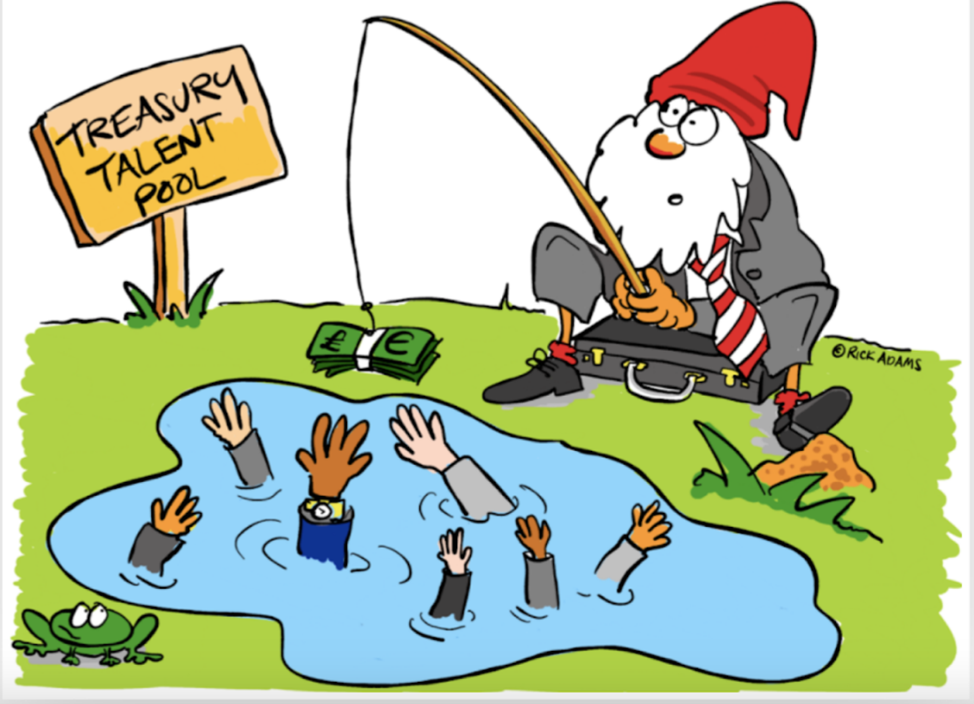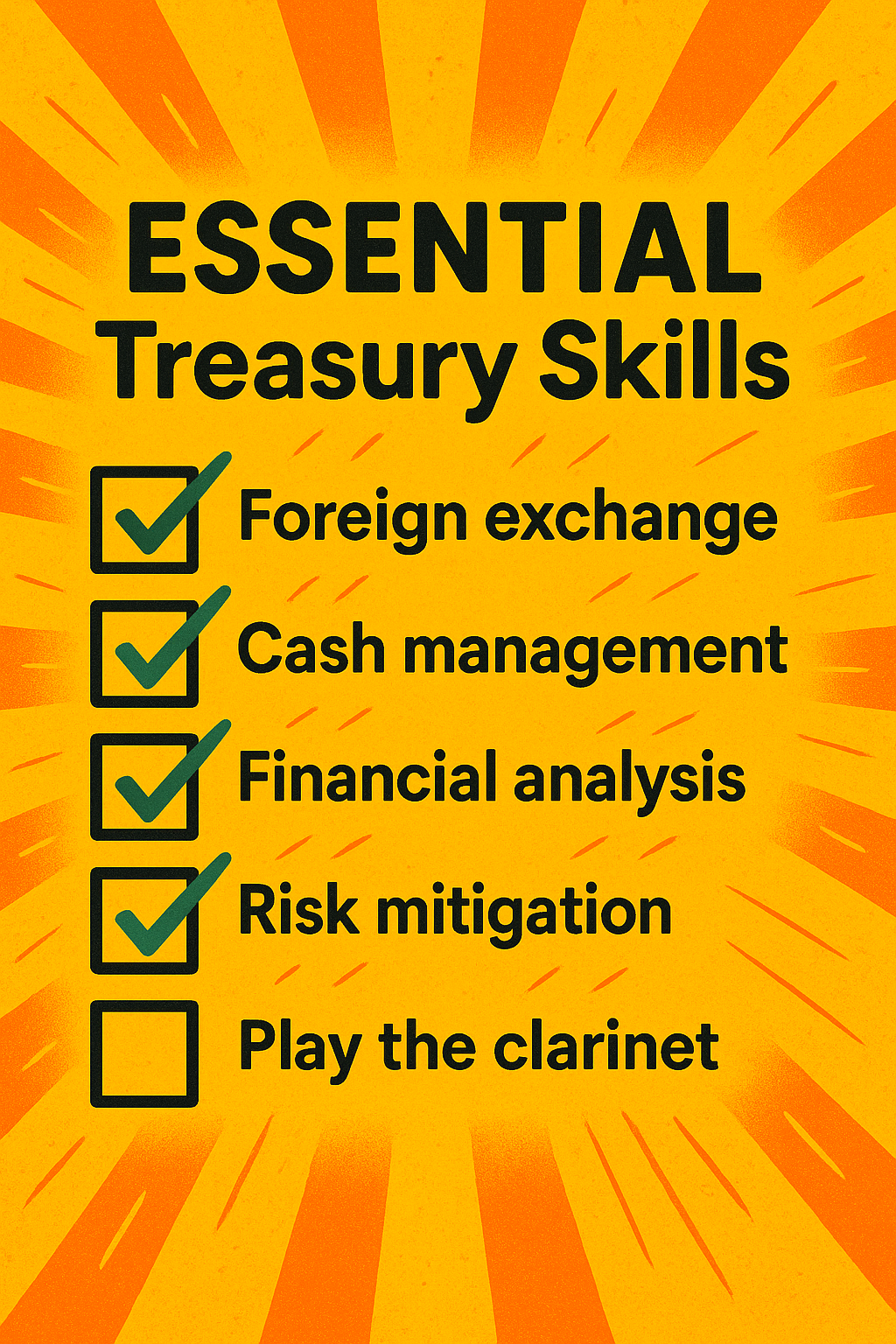Our CEO and founder, Mike Richards has sat down with Arturo from Kantox, to discuss how treasury roles are changing, whether automation will replace treasurers and more…
Arturo: Are treasury roles becoming more strategic?
Mike: I often hear this phrase at a variety of conferences as well as in the specialised finance media. As an example, I recently heard that “88% of Treasurers said they were considered to be a strategic business partner for their organisations.”
My automatic thought was “how can they be the judge of their own roles?” and “why would you ask treasurers how they see their role?”
You should ask their bosses!
What if only 20% of the CFOs say that they see their treasurer as that of strategic leader?
My question to these treasurers that want a more strategic function or consider their role as more strategic is:
“How would you move from your role in Treasury to become a CFO?”
If that’s what you want, then what you have to do is to find out how to achieve that change. Maybe this means doing a two-year MBA or gaining specific experience in a financial area that you don’t currently take responsibility for to broaden your expertise beyond treasury.
What I also hear is that the role of treasurer increasingly includes possessing technological acumen. This is true. But let’s not forget that the job of treasurer by its very definition has always been technical.
What has changed are the challenges they now face. Now apart from the day-to-day management of their team – dealing with the pressures coming from the CFO and the business, they also need to be prepared for all the new technologies coming in.
True, many of these are supposed to simplify their lives, but they’ve also got to put the effort in to be able to understand and maybe implement them.
So, if treasurers need to “be aware of new technologies coming in,” what are the implications from a skills standpoint?
Well, they need to have strong digital skills. But let’s be clear here, what they need to be is a good Treasurer, which includes the capacity of bringing in their IT team and working closely with them to improve the technology used within treasury. But this is entirely different from “today’s treasurer has to be an IT guru and programmer.”
Unfortunately, some of this misleading rhetoric is becoming more common.
I was at the International Treasury Conference, and one of the panellists said that all CFOs are now seeking treasurers that have outstanding IT skills. Well, many treasurers already have IT skills, so it’s not a new thing at all. When I recruit treasurers, I have never been asked by a CFO for a treasurer that has an in-depth understanding of Blockchain or who can program in Python or even who has recently been instigating straight-through-processing (STP).
I guess these recruitment requests you receive will vary depending on how the company perceives the role of the Treasurer?
Definitely! Treasurers at tech companies need to be more IT savvy, that’s the core of their business. The same if you go to a more traditional manufacturing company, where they often want candidates who have had more exposure to the latest developments in supply chain and risk management
But if you look at companies from the same sector, differences also arise depending on the way they view where the treasury sits
Do they see the treasurer as the custodian of cash or a visionary for the future (and where specifically on that scale)
Do they need risk technicians? Number crunchers? Or do they see the treasurer as a people manager?
Even within a firm, it could be the case that they are now looking for a treasurer that is more into accounting and controls, whereas a previous CFO may have seen the role of treasurer as a risk manager in a forward-focused function.
Ultimately, whatever is the case, clients come to me because they have a specific problem and need an appropriate solution. If they are looking for someone with team management skills their priority will probably be someone that is able to motivate their team.
Or maybe the firm wants to know the specific systems the candidate has experience with because they require specific skills that match their particular problem. So, coming back to my previous point, no one just says: “we need an ‘IT-techie’ treasury guy.”
Apart from this treasury vision or strategy of the company, how important is the ‘size factor’?
It is crucial, definitely. If the CFO needs people to help him, and if you, as a treasurer, really want a more strategic role, then sometimes the best solution might be for you to leave the company. However, finding the right move is not always easy.
Recently I was talking with a Deputy Treasurer who was thinking of going for the Treasury job, but maybe the right move for her was moving to a bigger company, working for a great boss who could help her develop and grow her ‘finance toolbox.’ In her case, she had no capital market exposure, which we decided that if she wanted to apply for some of the top positions, she needed to gain some experience in that area.
Do treasury professionals prefer to move horizontally or upwards?
When they’re looking for the next job, they’re always looking for the next step up. But what they need to analyse is what ‘the next step’ means to them. There might be some Assistant Treasurers that will obviously look for the Deputy Treasurer’s role because it pays more money and there is more responsibility. But you can change from Assistant Treasurer – Capital Markets to Deputy Treasurer – Capital Markets and make 10,000 extra euros. That said, despite the extra cash you will still be dissatisfied because you are performing nearly the same position.
Maybe another broader role could / should be your next move? You need to think carefully before chasing every role that’s out there!
How important are traditional certifications in the age of internet self-education (MOOCs, online courses, tutorials, etc.)?
They are a great rubber stamp. However, the fact that an independent and reputed institution ‘certifies’ your expertise does not imply that the person can implement this knowledge properly. That’s why many managers prefer people that can prove their abilities through their experience, rather than just qualifications.
The client will look at your CV, digging into how technically proficient you are, but they will end up asking what have you achieved; what you saved your previous company; where you made money and the impacts that you made.
That’s why having a proper pitch regarding your own achievements is often more powerful than any qualification.
Which advice would you give to any CFO when hiring a treasurer?
First, decide what you want and then recruit it. If you feel that what you need is someone “bringing change” or someone “to refresh things,” it makes no sense that you give me the job description you had on your desk for the previous treasurer and merely putting a new date on an old role profile.
Another piece of advice for CFOs is that they should not expect treasurers to want to join them. That’s not how the world works anymore.
You need to have “the pull factor” – treasurers are not going to rush to your door and say, “I want to work with you.” This implies that you need to tell the candidate why they should come and join your company. Be aware that this means that you, as a CFO, also must interview the candidates directly and explain to them how you are going to support their career path.
Do you find that CFOs are too conservative when hiring?
Many times. And that aversion to change could prevent them from finding new talent that could potentially refresh, not only a specific position but the department as a whole. For example, I recently recruited for a client in which the selected person started questioning why things were done in the way they were being done, from the scheduling of weekly meetings with different subsidiaries around the world to the treasury system that was in place. He made an immediate impact without upsetting people simply by implementing a much-needed overhaul of how treasury was seen by and within the business itself.
Last question: Will automation cause a major disruption in the treasury department?
There will always be low-value day-to-day tasks, and technology will reduce the time spent on them. It then depends upon how that cost saving is reinvested in the treasury team. Will they use it to do high-value tasks or will the company choose to save the money meaning that the treasurers are then often expected to do the same and produce better results with an equal or smaller budget?
So, if the question is: “will treasurers be replaced by robots?” The answer is easy. No, they won’t.
It is true, the routine and lower-value tasks will be automated, but treasury is not about routine, it is about how do you plan a future that you cannot predict.
This type of role, which constantly requires different reactions to unexpected events, cannot be done by a machine. The machine will ‘only’ help you and support you in your decision-making process.



